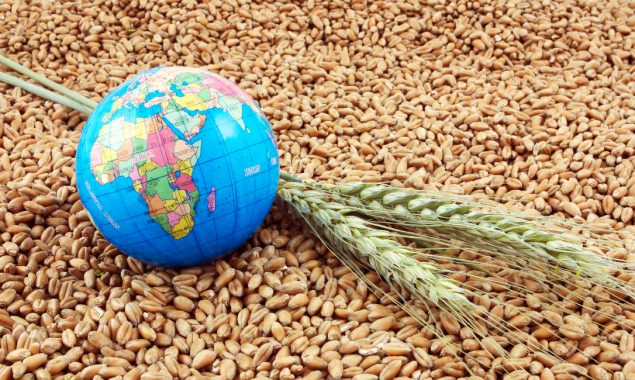Ensuring Food Security Is Top Priority: PM Imran Khan
Prime Minister Imran Khan has said that ensuring food security is the...

ISLAMABAD: Pakistan needs to upgrade its research system and make technological advancement for meeting the emerging challenges of food security across the globe, a government official said on Friday.
Addressing the pre-summit United Nations Food Security System meeting on “Pakistan Food Security System and Transformation”, Federal Minister for National Security and Research Fakhar Imam said that Pakistan was among the densely populated countries and needed to make swift go-ahead in its research and development system to meet the growing food demands.
The developed economies of the world adopted modern technologies, upgraded their research system and introduced latest solutions to meet their food requirements, he said.
“We in Pakistan are also expanding our research system and collaborating with the universities to involve the youth, which is half of the population, to transform the local agriculture sector and to make it attractive for them to create entrepreneurship opportunities for them,” the minister added.
Imam said that Prime Minister Imran Khan was taking keen interest in the development of the agriculture sector and prosperity of farming communities, adding that the special initiatives were also announced to enhance the per-acre yield to ensure availability of food commodities at affordable prices.
Due to the prudent policies of the present government, he said, despite the global Covid-19 pandemic, Pakistan had harvested bumper crops of wheat, rice, maize and sugarcane, adding that steps were being taken to promote high value crops to produce imports’ substitutions.
The availability of certified seeds are the major bottlenecks in enhancing the output of all the major and minor crops, Imam said, adding that to address this issue, the government had introduced track and trace policy to ensure supply of certified seeds for growers.
Under this policy, around 30 per cent requirements of wheat seed were met in the first year, he said, adding that the policy would be implemented on rice and cotton too to provide certified quality seeds for enhancing the per-acre crop output in the country.
The minister said the United Nations Summit was the most important in the pretext of global pandemic and finding ways and means to overcome the food safety and security challenges.
Special Assistant to the Prime Minister (SAPM) on National Food Security Jamshed Iqbal Cheema reiterated the government’s firm commitment for ensuring availability of the per capita food in the country by transforming the local agriculture sector.
To ensure affordability of food, the government is working on a multipronged strategy to enhance the income of farming communities across the country, he said, adding that it has set a target to bubble the income of farmers in the next five to seven years, adding that increasing income would help expand the access to food and its affordability.
The special assistant said to produce exportable surplus, the government has taken steps under its Agriculture Transformation Plan for mechanisation of the local agriculture sector, water conservation, and development of storage facilities.
Around 900 agriculture malls would be established across the country with the storage, grading and value addition facilities to keep the local prices of agriculture commodities at a sustainable point.
About the government’s initiatives to ensure food safety and security in the country, Imam said that the government had spent an amount of Rs286 billion under its Ehsaas Programme for ensuring access to food for the underprivileged segments of the society during the time of global pandemic.
Sharing the future strategies of the government to ensure food security in the country, the special assistant to the prime minister said special attention was being paid on crop losses at harvest and post-harvest stages by introducing the latest machinery and banning the imports of the outdated machinery.
The government would provide 50 per cent subsidy on the purchase of machinery and allocated Rs82 billion for this purpose and provided technical and financial assistance for developing value addition facilities of perishable items to keep their prices smooth throughout the year, he said.
“We are making all-out efforts to tackle [the] increasing demand of food and working to develop more land and for making it cultivable, besides focusing on the production of high value crops such as oil seeds, fruits and vegetables,” he added.
Cheema said that water conservation was another area of focus, adding that to save depleting groundwater, the government was working on the construction of small, medium and large dams, which would help bring more area under agriculture use.
Pakistan Agriculture Council chairman Dr Muhammad Azeem Khan said that the local agriculture sector was facing different challenges such as degradation of agriculture land, salinity and desertification, which was posing serious threats to the national food security.
The summit was taking place at a time when the world was facing global pandemic and, in this pretext, it has a paramount importance for achieving sustainable development goals, he added.
Catch all the Business News, International News, Pakistan News, Breaking News Event and Latest News Updates on The BOL News
Download The BOL News App to get the Daily News Update & Follow us on Google News.